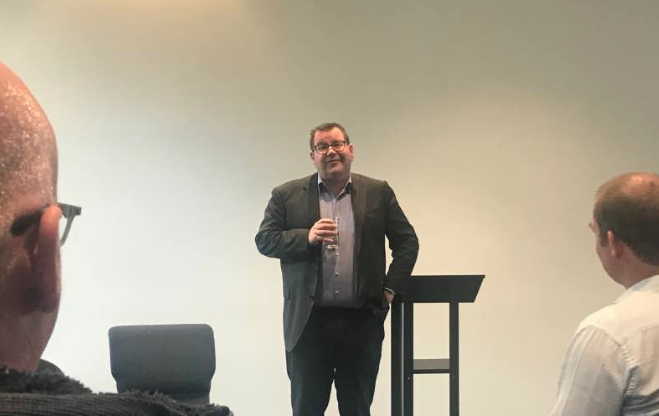Bad timing for minimum wage increases, businesses say
Sue Wards
16 December 2020, 5:06 PM
 The wage increase will affect sectors that employ ‘unskilled’ labour, such as retail, hospitality, tourism and some supporting industries. PHOTO: Wanaka App
The wage increase will affect sectors that employ ‘unskilled’ labour, such as retail, hospitality, tourism and some supporting industries. PHOTO: Wanaka App“Not great timing” seems to be the local businesses’ assessment of the government’s plans to introduce a further increase in the minimum wage.
The minimum wage was previously $17.70 per hour, but was increased to $18.90 per hour in April this year.
In April 2021 it will be raised to $20/hour: a jump of $2.30 in a one-year period.
Ignite Wanaka executive officer Naomi Lindsay said the change will impose significant costs to small businesses.
‘Significant costs’ for businesses
“The increase in minimum wage, proposed extension to sick leave, the new domestic violence leave introduced this year, proposed additional Matariki Bank Holiday as well as the proposal to increase the minimum wage to be offered to 3-year visa holders from $25.50 to $27 all adds significant costs to small businesses,” she said.

An escalation in fixed costs makes it harder to turn a reasonable profit, says a local businessman. PHOTO: Wanaka App
“This is on the back of a really tough year financially, with little relief on outgoings including rent, etc. This issue will impact many sectors that employ what is deemed unskilled labour earning hourly rates around the living wage rate, including but not limited to retail, hospitality, tourism and some supporting industries.”
“Many small and medium businesses are already struggling to maintain overheads with reduced income. Adding other increases to an already stretched environment is causing local businesses to rethink their business models, opening hours and staffing, as a ‘do nothing’ when faced with enforced rising costs isn’t an option,” Naomi said.
Naomi said the general issue of rising business costs was mentioned at a recent local meeting with incoming tourism minister Stuart Nash.
“He is aware of the pressure this puts on business. We will continue to raise these issues with appropriate parties as and when we can,” she said.
Staff may lose jobs
Local businessman Brian Kreft, who owns Wanaka Paper Plus, said the impact of the cost increases will vary from business to business depending on the strength of their cash flow or balances.
“The concern is the escalation in fixed costs and it just makes it harder to turn a reasonable profit… You've got to look and say what can you do to decrease costs to cover,” he said, adding that in some cases that will mean staff will have to go.
Brian also noted the ‘domino effect’ whereby staff receiving an increase in wages will lead to other staff seeking a wage increase of $2.30 per hour.
For example, an adjustment in pay by that amount for 10 staff could increase costs by $51,667 compared to 2018.
“The timing’s diabolical. I don’t think thought has been given to the escalation of this because it permeates through the whole business,” Brian said.
However, Brian believes the Reserve Bank has done well in keeping unemployment low and money flowing into the workplace.
“The proverbial hasn’t hit the fan, but it’s just a matter of when that’s going to be,” he said.
Or - wage increases will stimulate economy
When finance minister Grant Robertson visited Wanaka on the campaign trail in October he said an increase to the minimum wage would stimulate the economy.
He said the idea that increasing the minimum wage is bad for the economy doesn't stack up, pointing out that unemployment fell constantly throughout the 2000s, despite minimum wage increases averaging 8 per cent, and it continued to fall throughout the 2010s even with further minimum wage increases by both National and Labour governments.

Finance minister Grant Robertson said an increase in the minimum wage will stimulate the economy. PHOTO: Wanaka App
Low wage earners spend most of what they earn in the economy, so increases act as an economic stimulant, he said.
It’s also a moral issue, Grant said: Employees should earn enough to live on.
“We believe that many people are trying to get by on very low pay and having a pretty hard time and they deserve to make a living,” he said.
A new report from the Helen Clark Foundation and the NZ Institute of Economic Research says now would be a good time to bump minimum wage to $22.10 - the amount determined by the Living Wage campaign to be "necessary to provide workers and their families with the basic necessities of life".
How locals are paid
Ignite surveys local businesses annually to gauge wage levels, although the survey was not conducted this year because of COVID-19 restrictions.
Naomi said among respondents there was an increase in wages paid for both the skilled and unskilled workforce in 2019.
Last year’s survey indicated just 1.49 per cent of businesses who responded to the survey paid their staff on average the then minimum wage of $16.50 per hour.
Almost six per cent of respondents paid their staff an average of $17.21 per hour, and almost 39 per cent of respondents paid their staff an average of between $21-$28.
Local cafe owner Chris Hadfield, who is also a member of the Wanaka Community Board, said he has always paid all of his staff more than the minimum wage.

Chris Hadfield says paying his staff a living wage has kept them in town. PHOTO: Supplied
“The majority of our permanent local staff we’ve paid the living wage, which is why some of them have been there for eight years or more,” he said.
Chris said, however, that the wage increases are bad timing for local businesses.
“It’s going to be three to five years before things are anything near to what they used to be. I think we’d all agree that it’s not great timing.
“Ultimately if base costs go up, prices go up,” he added.
Life on the minimum wage
One local worker told the Wanaka App it is “very hard to survive here on minimum wage”.
Working a 40 hour week on the current minimum pays $752 before tax - just over $600 a week in the hand.
With rents around $500, she said, that can leave just $100 per week for food, petrol and other costs.
“Getting top ups from WINZ and Working For Families basically means public money is being used to help top up employees of these businesses to be able to survive, essentially subsidising them,” she said.
“The rise gives an extra $44 before tax on a full time wage: it may be the difference between eating well and staying healthier, or not. Employers need to think more long term but they won't until they are forced to.”
Community Networks general manager Kate Murray said the service provides assistance and food parcels to working families in Wanaka.
“We definitely do see people who are above the threshold for Work and Income who are struggling to make ends meet.
“Their cash flow position is difficult - it doesn’t take many unexpected costs, such as healthcare, to not be able to manage,” she said.





